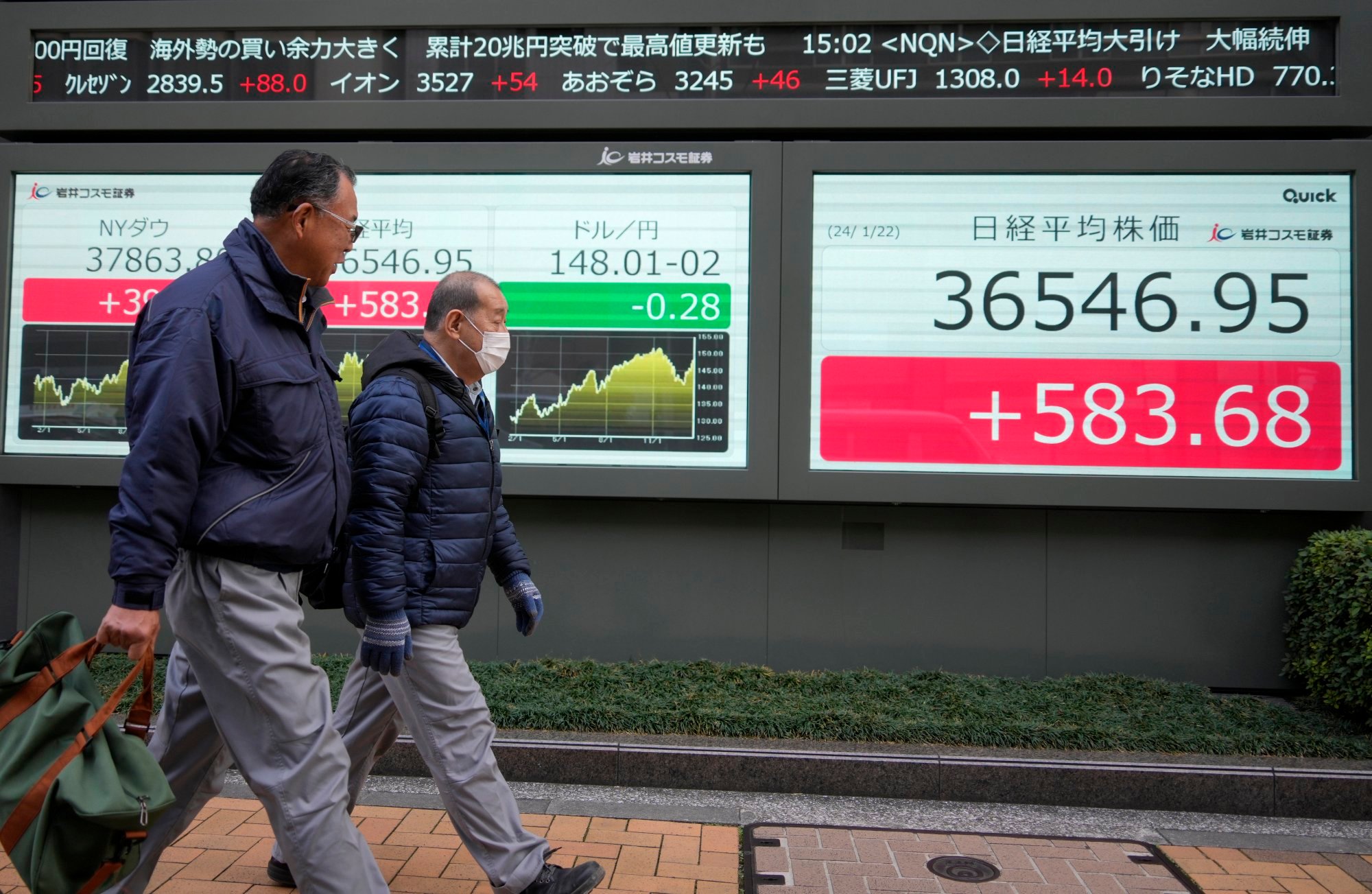Opinion | Pumped-up stock markets are no indication of a country’s economic health
Productivity-enhancing capital investments in manufacturing, infrastructure (digital as well physical) and human resources, for example, boost growth rates and absolute gross domestic product. But how many people watch these?
Instead, a key indicator of economic health that people look to increasingly is the level of a nation’s stock market, and that can be influenced or manipulated by domestic monetary policy and international capital flows.

But as economist and analyst Richard Katz observed in a recent commentary, this doesn’t mean that Japan is back. While Japanese stock prices are up 60 per cent from six years ago, real “GDP is up a trivial 1 per cent”, he notes.
This is an important point, and by no means only in relation to Japan. Expressed in money terms (as GDP is), growth has been inflated by the liquidity-pumping of central banks in most advanced economies.
We tend to focus on how this affects the price of goods and services – and current price inflation – but financial liquidity also pushes up the price of stocks and property, creating an asset price inflation which in turn raises GDP.

Stock markets are booming in Japan and the United States on the back of strong liquidity, and the sentiment-boosting effect of this supercharges perceptions of how strong the two economies are.
All this gives new meaning to the term “market economy” as it implies that major economies are being driven increasingly by the level of their stock markets per se rather then by the stimulus of market competition.
Governments’ rising use of monetary and fiscal “tools” (as policymakers call them) in the aftermath of the global financial crisis and then during and after the pandemic has created an impression of official omnipotence.
China can absorb its property crisis. Can US and Europe say the same for theirs?
China can absorb its property crisis. Can US and Europe say the same for theirs?
Even the IMF, in its latest World Economic Outlook update, has joined the ranks of optimists, with economist Pierre-Olivier Gourinchas writing that “the clouds are beginning to part. The global economy begins the final descent towards a soft landing…”
US stocks, those in high-flying tech sectors especially, are by some estimates highly overvalued, and those in Japan are at three-decade highs. A correction (or crash) delayed is not a correction averted.
What will provoke it, and the financial and economic stress it causes, will not be a return to rising interest rates but the simple fact that rates will remain elevated in an environment of record leveraging. Debt distress will rise, with unknown consequences, and it will hurt.
As Katz observes in his commentary on Japan: “Under certain conditions, the stock market can both reflect the economy and help predict its future. But those conditions do not prevail in Japan and do not always prevail elsewhere either.”
One reason is that share valuations in the US, Japan and other markets are high as a result of so much official liquidity being introduced. It has little incentive to leave and few other places to go to – until an inevitable crack in confidence sends markets into a panic.
Another reason is the high volume of share buy-backs in these markets. When companies buy back their shares, it tends to boost shareholder value because it reduces the supply of shares in the market and the total amount of dividends that need to be paid out.
Financial sector has a duty to break the cult of equity
Financial sector has a duty to break the cult of equity
But it also amounts to a reduction of capital and funds available for investment in new productive or human resources, and is consistent with the short-termism that prevails increasingly in stock markets and the cult of equity.
Stock balloons or bubbles have been generously inflated but, the bigger they are, the harder they fall or the louder they pop before plunging back to earth. Stock markets are not the omnipotent entities commonly supposed.
Anthony Rowley is a veteran journalist specialising in Asian economic and financial affairs



 Offers free spin
Offers free spin